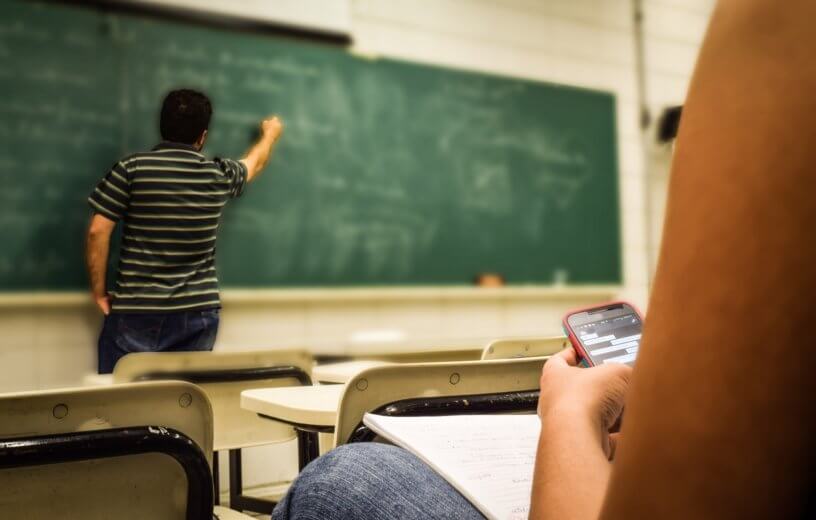It seems the entitlement bug hits young adults even before they enter the real world: college students believe it’s their right to do whatever they please on their phones or laptops during class.
WATERLOO, Ont. — The college professors of the world may want to brush up on their stand-up routines or acting chops, as modern students believe it is the instructor’s responsibility to ensure they are “entertained” and not tempted to surf the web or watch YouTube videos during class. According to a revealing new study recently conducted at the University of Waterloo in Canada, college students feel it is their right to use their phones and computers however they prefer while sitting in class.
In all, 478 undergraduate students and 36 professors were surveyed on the use of technology in the classroom. While most surveyed students said they primarily use technology in class to keep up with the course, others reported using their devices to focus on other classes, or to simply surf the web when they felt bored. Interestingly, the survey found that since they are paying for their education, students feel they can do whatever they please with their technological devices while in class.
“While students felt that it was their choice to use the technology, they saw it as the instructors’ responsibility to motivate them not to use it,” says co-author Elena Neiterman, a School of Public Health and Health Systems professor at Waterloo University, in a release.
So, how are all of these screens affecting other students sitting in class? Only 9% of surveyed students said that course materials on other people’s laptops were distracting, but nearly half (49%) said that seeing other students on YouTube or the internet during class broke their concentration.
When it comes to professors, the majority (68%) do not want to see a smartphone being used in their classroom. On the other hand, only 32% said they don’t like laptops in their lectures, but that is assuming that the laptops are being used for school work. Some instructors noted that students using laptops and phones during their class even impedes their ability to teach effectively.
“Some students said that instructors need to be more entertaining to keep students engaged in the classroom, but this a big ask, given that we are not employed in the entertainment industry,” Neiterman explains. “There is also a question of what we are preparing our students for: If we are training them for future employment, we might need to teach them to focus even if the class is ‘boring.'”
All that being said, surveyed professors also admitted that simply banning all technology from classrooms isn’t an adequate solution.
“Technology makes education accessible for students with disabilities, and many instructors use online tools such as Ted Talks and YouTube videos in class,” Neiterman comments. “Our students use technology to take notes – students today don’t even learn cursive in school. ”
Besides the obvious problems with policing a technology ban in large, lecture hall-sized college classes, researchers also noted that banning all student technology in classrooms would hamper students using phones and laptops in accordance with a disability.
The study is published in the Canadian Journal for the Scholarship of the Teaching and Learning.
